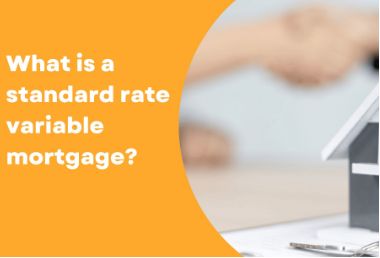What is the process for standard variable rates?
Your lender will determine the interest rate known as a standard variable rate, or SVR. After their initial agreement expires, mortgage borrowers are transferred to this default interest rate. For instance, you will be transferred to your lender’s SVR if you take up a two-year fixed-rate mortgage and you don’t remortgage before the two-year contract period ends.
Your monthly repayments may increase if the SVR is more than the interest rate you were paying on your original agreement. You can, however, often leave the SVR at any time by taking out a new mortgage arrangement.
Your lender may alter the SVR at any time because the rate is variable. You should anticipate an increase in your monthly repayments if a lender chooses to raise its SVR. Repayments on an SVR mortgage will typically decrease if a conventional variable rate decreases as well.
What is a mortgage with SVR?

If you are paying the standard variable rate of interest set by your lender, you will have an SVR mortgage. Those with SVR mortgages frequently got transferred to it automatically after their first fixed, tracker, or discounted mortgage contract expired. It might be feasible to obtain a normal variable rate mortgage and settle the lender’s shortfall without first obtaining any other kind of mortgage.
A standard variable rate changes how often?
Lenders are free to change the amount and timing of their normal variable rates as they see fit.
While a lender’s decision to set an SVR may be influenced by changes in the Bank of England base rate, a decline in the base rate does not ensure that an SVR will follow suit. In contrast, with a tracker mortgage, the mortgage rate is automatically adjusted to reflect changes in the base rate.
Even if a lender decides to adjust its SVR after the base rate moves, it might not do so immediately or by the same amount.Other considerations that may be taken into account in addition to the base rate when calculating an SVR include the cost of funding mortgages, the state of the economy, and a lender’s goals for lending volumes and recruiting savings.
What standard variable rate is in place right now?
There is currently no single standard variable rate available because different lenders’ SVRs may change. Lenders typically show their SVR on their website and contact borrowers with regular variable rate mortgages when it changes.
How do rates on SVR mortgages compare?
Generally speaking, standard variable rate mortgage rates are greater than those of other mortgage kinds.
On March 1, 2024, lenders in the UK charged an average standard variable rate of 8.18%, as reported by Moneyfacts.
In contrast, the average mortgage with a two-year fixed rate was 5.76%, while the average mortgage with a five-year fixed rate was 5.34%.
What is the duration of a standard variable rate mortgage?
Unlike fixed-rate mortgages, normal variable rate mortgages often don’t have an initial deal time. This implies that there are no early repayment penalties when you move to a new plan and can remain on the SVR for an extended period of time.
What benefits might SVR mortgages offer?
The following are the primary advantages of a typical variable rate mortgage:
- Flexibility: Early repayment fees are typically waived on SVR mortgages. This implies there are no costs or penalties associated with overpaying your mortgage or switching to a new mortgage arrangement.
- Minimal fees: A mortgage that has an upfront charge of the lender’s SVR is likely to have a minimal setup cost, if any at all.
- Possibility of rate decline: SVR rates are erratic, thus they could decrease or increase.
What drawbacks do SVR mortgages have?
Should I switch from the standard variable rate?
If your current fixed, tracker, or discount mortgage deal is about to end, or if you’ve already moved on to your lender’s standard variable rate, it may make sense to remortgage onto a new deal, especially if you could save money. The main drawbacks of standard variable rate mortgages are: Expensive – Standard variable rates are usually substantially higher than the best mortgage deals. Rates can rise – Your lender can change the SVR at any time, which could result in your monthly repayments rising suddenly.
Remortgaging will reduce your monthly repayments if the rates available on competing mortgage products are lower than your lender’s SVR.
However, there are several situations in which sticking with an SVR makes sense. For example, a normal variable rate allows you to pay off your mortgage early without incurring penalties if you decide to relocate or sell your property soon.
Similarly, it may not be cost-effective to remortgage to a new agreement if you have nearly completed repaying your present mortgage due to the costs associated with taking out a new one.
You can find it difficult to secure a remortgage agreement when the lenders have a minimum mortgage amount that you have to take out if you only have a modest amount remaining in your mortgage.
To determine which course of action is most likely to be beneficial for you, you might choose to get mortgage advice if you are unsure of what to do.
FAQs on Standard Variable Mortgage
What influences mortgages with variable rates?
Even though interest rates may change during the period of a variable rate mortgage, mortgage payments are fixed. A larger portion of the payment is used to pay interest if interest rates rise, and a smaller portion is used to reduce the principle if they fall.
Can a variable mortgage change?
The interest rate on a standard variable rate (SVR) mortgage is solely determined by the lender, which could be your bank or building society. This rate is subject to change at any time and is generally higher than the deals that are offered. This implies that having an SVR mortgage can significantly raise your total payback costs.
Do business mortgages have lower rates than do residential mortgages?
No. Because commercial mortgages have less market competition and are viewed as a higher risk by lenders, they are typically more expensive than personal mortgages.
However, a typical residential mortgage would not be accepted for the purchase of a commercial property.








Leave a Reply